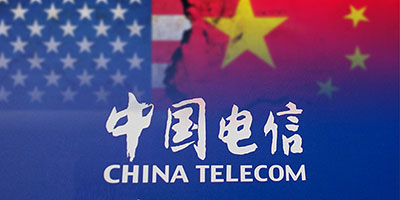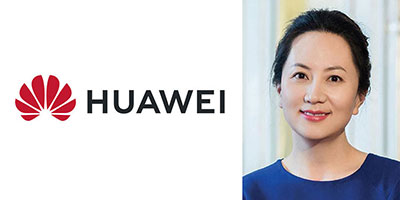Lawyers for Huawei Chief Financial Officer Meng Wanzhou argued in a court to let her leave home without the security detail that was a condition of her bail since she was released after her December 2018 arrest.
Policy News
China announces approved COVID-19 vaccines
ExpiredTwo COVID-19 inactivated vaccines have just been approved to go into clinical trial by the National Medical Products Administration (NMPA) of China.
Ericsson files lawsuit against Samsung over royalty payments
ExpiredEricsson has filed a lawsuit against Samsung in the US, for their alleged violation of commitments related to royalty payments and patent licenses.
Security risk threatens China Telecom’s role in US market
ExpiredThe United States has threatened to cut off Beijing-controlled China Telecom from serving the US market because of legal and security risks, announced the Justice Department.
Transplanting Legal Context without the Law: Double Criminality in Meng Wanzhou’s Extradition Case
ExpiredBy Sean D. Yates
Introduction
Comparative lawyers have for over a century examined the ways different legal orders organize their laws. They have observed how law travels, how rather than reinvent the wheel, lawmakers will often copy or borrow legal ideas from another place (or time) and use it themselves. Law, however, doesn’t always fit. That is, it doesn’t always do what it is supposed to do. It may fail to achieve its intended purpose, may do better than expected, or may end up fulfilling an unintended purpose. Comparatists have also therefore highlighted the importance of the social context from which law is taken and into which it is placed, and how the transplanting exercise inevitably results in the law in question undergoing a transformation. It is no longer the same law because it operates differently in a different social context.
Anti-government website banned under controversial law
ExpiredFacebook on Tuesday blocked the page of an anti-government website in Singapore following a demand from authorities but slammed the "disproportionate" use of a controversial law against online misinformation.
IMDA selects Singtel and JVCo for nationwide 5G rollout
ExpiredThe Infocomm Media Development Authority (IMDA) issued the Final Awards to Singtel Mobile Singapore Pte Ltd (Singtel) and the Joint-Venture Consortium (JVCo1) formed by StarHub Mobile Pte Ltd (StarHub) and M1 Limited (M1), at the close of a rigorous and holistic 5G Call for Proposal (CFP) process. Singtel and JVCo were issued the Provisional Awards in April this year.
The case of Huawei's Meng explained
ExpiredMeng Wanzhou, the chief financial officer of the Chinese telecom giant and daughter of its founder Ren Zhengfei, was detained in the Canadian city on a US warrant in late 2018. Her arrest put the 47-year-old at the center of the US and China's battle over Huawei's growing global reach. Hearings into whether she can be extradited to the United States began on January 20 in Vancouver, in a case with potential repercussions for ties between the US, China and Canada.
Singapore aims to rebuild economy with FY2020 expenditure increase
ExpiredTo boost the economy and support businesses recovering from COVID-19, the Singapore government will spend an estimated $3.5 billion on ICT procurement in Financial Year (FY) 2020, an increase of 30 % from FY2019’s projected spend of $2.7 billion. The increased spending will help the government accelerate digitalisation as technology becomes increasingly vital in enabling citizens and workers to resume normal activities, and businesses to reopen safely after the COVID-19 “Circuit Breaker” (CB). Small and medium-sized enterprises (SMEs) will be eligible to participate in 80% of these potential procurement opportunities.
India greenlights China's participation in 5G trials
ExpiredNew Delhi has said it will let Chinese telecoms giant Huawei take part in trials for the rollout of 5G services in the huge Indian market, giving the firm a major boost as it battles US sanctions.














